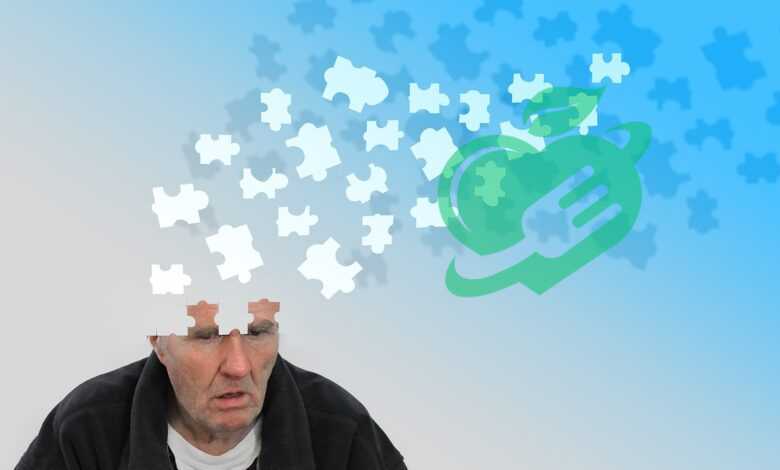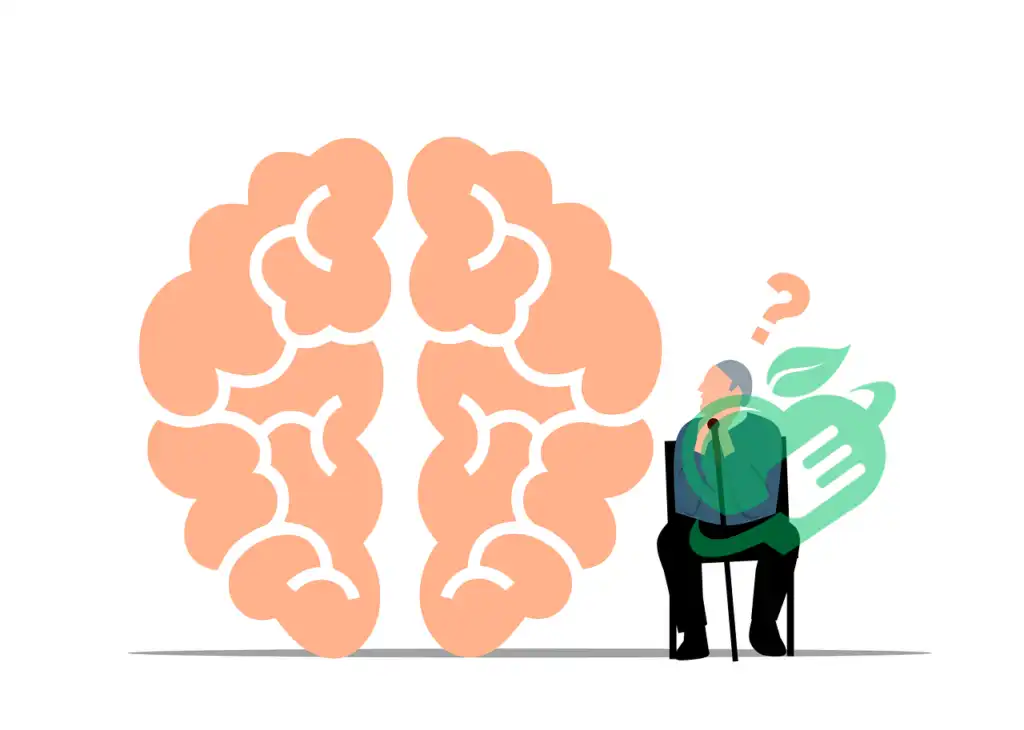natural ways to slow down early Alzheimer’s symptoms


I used to think that Alzheimer’s disease progressed in just one direction.
It moved forward like a river—calm and relentless, gradually cutting deeper as the months passed.
After his diagnosis, I came across a story about a man who put away his bagpipes.
And months later, unpacked them again.
He didn’t find a miraculous medication, nor did he have surgery or receive stem cell treatment.
What he changed was how he lived.
In a thorough, peer-reviewed clinical study, he wasn’t the only one to experience positive outcomes.
The narrative that transformed my perspective—and could potentially alter your future—is presented below.
A Study That Deserved Front-Page Coverage
In 2024, a significant yet small randomized controlled trial was published by the Preventive Medicine Research Institute, directed by Dr. Dean Ornish.
Fifty-one individuals diagnosed with early-stage Alzheimer’s were separated into two groups:
One group received standard care.
The other group made extensive lifestyle modifications, which included adopting a plant-based diet, engaging in daily physical activity, practicing stress-relief methods, and receiving support from a group.
Within just four and a half months, the contrast was striking.
Seventy-one percent of the individuals in the lifestyle group showed enhancement or maintenance in their brain function test results.
The control group showed no signs of improvement.
And 68% of the control group declined.
No pills. No devices. Just choices.
The research was limited in size, yet its message was strong.
The Bagpipe Player from Utah
Dan Jones, who lived in Cedar City, Utah, was 56 years old when he started to notice small things slipping from his grasp.
Initially, it was the incorrect notes in the tunes he performed with his local bagpipe group.
Then forgotten appointments.
Then confusion while traveling for work.
When he received his diagnosis of early-stage dementia in 2021, he and his wife had discreetly put their plans on hold.
He put away his bagpipes, took on a more straightforward job, and prepared himself for what lay ahead.
Later, his wife, Darla, discovered a clinical trial that seemed almost too optimistic to believe.
If he enrolls, Dan will need to give up many of his favorite foods, such as roast beef, homemade spaghetti, and ice cream.
He would need to practice meditation every day, engage in regular exercise, and attend a support group a few times each week.
He said yes.
Several months later, things started to change.
What Changed — and Why It Mattered
Dan wasn’t completely healed, but his condition had stabilized. In fact, standardized memory assessments showed that some areas of his cognitive abilities had actually improved.
By July 2022, he was back to playing the bagpipes in his community parade. He no longer experienced confusion upon waking in hotel rooms. His everyday life became more stable in ways he never imagined.
He said to the researchers, “There’s no amount of money that could persuade me to return to my previous way of living. The change has been that significant.”
What, exactly, did he do?
Read also: Brain Damage Posturing: What You Must Know
The Four Pillars of the Protocol
Members of the intervention group dedicated themselves to four significant lifestyle changes, which were monitored, assisted, and maintained for slightly more than four months.
1. Nutrition
They embraced a whole-food, plant-based diet that is low in saturated fats, refined carbohydrates, and added sugars, with minimal processing. Nutritional supplements were given as required.
2. Movement
Engage in at least 30 minutes of aerobic exercise each day, such as walking, cycling, or swimming. Additionally, incorporate light resistance training at least three times a week.
3. Stress Reduction
An hour each day dedicated to mind-body activities such as breathing exercises, yoga, meditation, and deep relaxation was recommended, with a strong focus on maintaining good sleep hygiene.
4. Social Support
Participants engaged in three one-hour group sessions each week with their partners or spouses. These sessions featured emotional check-ins, memory improvement exercises, discussions on brain health, and mutual accountability.
No shortcuts. No hacks.
Simply organized, evidence-driven modifications in behavior.
What We Now Know About Brain Aging
In recent years, we have discovered that the aging of the brain is not solely determined by genetics or destiny. Instead, it is significantly shaped by our daily habits.
A brief daily walk can enhance brain size, boost memory, and slow down cognitive decline—progressing gradually with each step.
Studies now show:
Engaging in just 25 minutes of moderate exercise each week is linked to an increase in brain volume.
Low-quality sleep heightens the risk of dementia by disrupting the glymphatic system.
Ongoing inflammation, frequently influenced by diet and stress, speeds up the reduction of the hippocampus.
Meditation and social interactions seem to maintain the thickness of the cortex.
With the help of advanced AI tools, researchers can now determine how quickly the brain is aging—whether it’s faster, slower, or progressing as expected—by analyzing MRI scans and blood biomarkers.
Read also: Brain Freeze Buster: Remedies for Instant Relief
Can You Measure Your Brain Age?
You may be curious about whether you can evaluate yourself, and the answer is: yes, soon you will be able to.
Scientists at the Leonard Davis School of Gerontology at USC have created an AI model that predicts brain aging by analyzing structural MRI scans.
It assesses the dimensions of memory areas like the hippocampus, along with the thickness of the cortical layer.
In addition, a startup known as NeuroAge provides a blood test priced at $700, which examines RNA signatures that are linked to the age of the brain.
Their all-inclusive package features genetic testing, an MRI, memory assessments, and a complete “brain age” report.
Dr. Christin Glorioso, the founder of NeuroAge, has one copy of the APOE4 gene, which is linked to an increased risk of Alzheimer’s disease.
“She started safeguarding her sleep as if her life relied on it—because, in many respects, it truly does.”
These tests are currently in the initial phases, costly, and have not received FDA approval for regular use.
You don’t require an expensive $700 test to get started. Simple, consistent practices like physical activity, healthy eating, and fostering curiosity can start to change the direction of your brain today.
Read also: Choosing the Best Diet for Enhancing Brain Health
But the direction is clear:
In the near future, you’ll have the opportunity to observe the rate at which your brain is aging and how it adapts to changes.
However, you don’t have to get a blood test to get started.
Dan Jones never underwent a brain scan or an RNA test.
He didn’t need one.
He decided to make a change before the situation deteriorated further.
What occurred next led to a different conclusion for his story compared to many others who have the same diagnosis.
Read also: 3 simple ways to stop negative thoughts
Want to Protect Your Brain?
If you’re feeling exhausted, unfocused, or experiencing slight memory lapses, this complimentary guide offers research-supported habits to safeguard your brain and regain mental clarity: 10 Daily Habits That Calm the Mind.
If you’re feeling exhausted, unfocused, or just in need of some peace, this book provides a helpful guide to regain your sense of clarity.
An older couple strolls together along a tree-lined pathway during sunset, their silhouettes illuminated by a warm golden glow, representing a lasting bond and the benefits of healthy aging.
They stepped into the light together, still together. By making the right decisions, we can all remain intact for a longer time.
Read also : Ozempic Diet Success Stories: Real People, Real Results
Final Thoughts
We have often viewed Alzheimer’s as an irreversible decline — a type of memory loss that cannot be halted.
What if we’ve been approaching the issue from the wrong perspective?
What if the aim isn’t to reverse things, but rather to withstand them?
Dan Jones’s narrative is not one of miracles.
It’s a model.
One man. One diagnosis. One decision.
A choice to change how you eat, how you move, how you breathe, and how you connect with others.
The result?
His bagpipes didn’t gather dust.
His mind didn’t fade as fast.
He regained a sense of control that most individuals with Alzheimer’s typically do not experience.
The next step is ours.
The sooner you start, the more of your true self you can preserve.
Have you ever experienced something like this? Share your story in the comments to inspire others. And remember your support helps keep our content going!
“Based on a true story published publicly, rewritten and expanded for educational purposes.”

